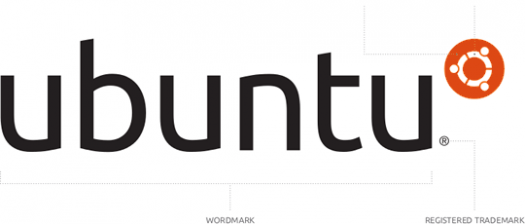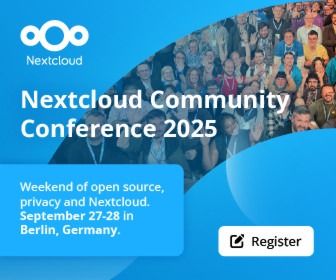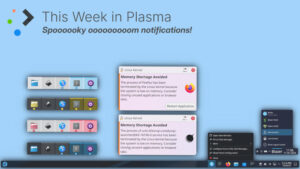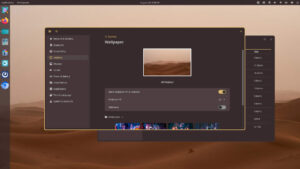With all the changes happening at Canonical, you might wonder what this means for the future of desktop Ubuntu, besides the return to the GNOME desktop.

There hasn’t been this much news about a single Linux distro in like forever. Well, maybe when Caldera, operating under the name SCO, sued IBM for a cool billion, but other than that…nada. One thing’s for sure, the announcements that have been coming out of the Isle of Man for the last couple of weeks mean that Canonical has forever changed its course.
It also indicates that Mark Shuttleworth has decided that it’s now do or die time — you know, put up or shut up, money talks and bullcrap walks and all that. This means that from this point forward, Canonical will no longer be a company focused on the desktop. From here on out, it’s enterprise all the way, baby.
That’s probably going to work out well for enterprise users of Linux — time will tell. It doesn’t bode well for down in the trenches users of desktop Linux. From here on out, at Canonical, desktop Linux will be job number two. If that.
In an article I wrote a week ago for another publication, I looked at the tea leaves and determined we’ll probably eventually be kissing the factory made Ubuntu desktop we’ve all learned to love or hate goodbye. At the time, I thought “eventually” meant several years down the road. Now I’m not so sure. That day could come sooner, maybe next year.
“Going forward, it appears, Canonical will be more tightly focused on profitability, which in addition to job cuts, will mean eliminating projects that aren’t being monetized. This means the desktop edition is probably destined to eventually be dropped, especially since users will have the numerous independently developed (and officially sanctioned) “baby *buntus” as options.”
Since those words were written, part of this has already come true. The Ubuntu GNOME crew announced on Thursday that beginning with 18.04, the word “GNOME” will be dropped from the distro’s name and it will become the “official” Ubuntu desktop release.
“[T]here will no longer be a separate GNOME flavor of Ubuntu. The development teams from both Ubuntu GNOME and Ubuntu Desktop will be merging resources and focusing on a single combined release, that provides the best of both GNOME and Ubuntu. We are currently liaising with the Canonical teams on how this will work out and more details will be announced in due course as we work out the specifics.”
In other words, the developers of Ubuntu aren’t simply going to switch-out Unity for GNOME in Canonical’s mainstream release, they’re going to drop responsibility for the release in the lap of Ubuntu GNOME’s community developers, and offer an as-yet-to-be-determined amount of help. Since the “baby *buntus,” or “official flavors” of Ubuntu, are Canonical’s answer to Red Hat’s and SUSE’s “community editions” (Fedora and openSUSE), this means that beginning next April, Canonical will have the opportunity to distance itself from its desktop edition.
We’ve been here before. In 2003, when Red Hat dropped its desktop distribution, Red Hat Linux, to crank-up Red Hat Enterprise Linux and reinvent itself as an enterprise only company, it created the “community” desktop distro Fedora, in which the community has a say in how it’s developed, even though it’s owned by Red Hat — which pretty much controls its development by proxy.
SUSE was also a distro that was used and marketed as both a server and desktop distro. That changed after it was bought by Novell, which repurposed it as a distro developed exclusively for enterprise use. It also developed a “community” desktop offshoot, openSUSE, with a slightly different take from Red Hat. openSUSE is much more autonomous, with SUSE basically supplying essentials such as server use, but otherwise leaving community developers alone..
There’s no telling how things are going to work out between Ubuntu prime and its desktop development. At this point, it’s not even clear that Ubuntu will be distancing itself from its desktop edition as Red Hat and SUSE did — Shuttleworth would certainly like us to believe it won’t.
If there is going to be a split, we’ll probably begin to see signs of it before the end of next year. If Canonical starts to require a support contract before Ubuntu Server can be downloaded, it’ll be a dollars-to-doughnuts bet that a split between the desktop and server is in the works.
In that case, Ubuntu desktop users will be the losers. Desktop Ubuntu becomes something akin to openUbuntu, or perhaps Fedubuntu. It might become, like Fedora is for Red Hat, something of a testing ground for Ubuntu Server, or it might simply be a bone thrown to keep all the FOSS supporters at bay, like openSUSE.
Again, time will tell.
Christine Hall has been a journalist since 1971. In 2001, she began writing a weekly consumer computer column and started covering Linux and FOSS in 2002 after making the switch to GNU/Linux. Follow her on Twitter: @BrideOfLinux













Looks like it’s back to Linux Mint, sorry Clem, I was just too lazy to replace Ubuntu on this pre installed purchase. Can I come home now.
It will be interesting to see how this plays out with Zareason and System76.
@Randal Not to mention Dell, eh?
@tracyanne Hey, Mint’s a better distro, IMHO. 🙂
I’ve never had any interest in the corporate puppet distros, Fedora, openSUSE, Ubuntu, etc. Neither am I interested in any distro derived from them.
Mike So why bother to comment on this post? We don’t care 😛
@Nein
> “We don’t care”
How many personalities do you have behind your keyboard?
I don’t care that you and your imaginary friends don’t care.
I think canonical and Ubuntu will still have a polished, solid desktop offering supporting their brand just they started as a polished branded beautiful well compiled and tested gnome Desktop. They probably understand its importance to getting to all their markets as a platform for people to experience their stuff.
It’s Novell, not Novel. [ 2 L’s ]
@Mike What are you, and what have always ever, been interested in?
@InvisibleInk
I started with Slackware but moved to Debian when libre software become an important factor for me. Debian’s formal commitment to free software and user freedom via the DFSG is a big deal that is often overlooked and underappreciated. Unfortunately I think Debian has a made a (hopefully not fatal) mistake in trying to chase after Red Hat’s droppings (aka systemd and GNOME crap). So Devuan is a better choice at the moment.
Gentoo is not terrible, although I stopped using it when they dropped built-in support for a fully-libre kernel a few years ago. The uncaring attitutes of some of the developers (Greg Kroah-Hartman comes to mind) towards this didn’t endear me to the distro either.
GoboLinux is a very interesting distro with a lot of neat ideas. One of my favorites.
Lately for x86-64 I mostly just build Linux machines from source to suit my needs (started with LFS but eventually customized it). For arm boards like Raspberry Pi I use Raspbian or customized LFS.
@Mike Thanks. I started with Slackware, too. In the aughtjes I went to Mandrake, then Fedora, then Ubuntu. Can’t say I ever cared much for Stallman, his FSF, or FOSS freedom.
I moved on from Ubuntu to Arch, and now back to Fedora
I thought this article was interesting. I agree with the writer that it looks like Ubuntu will now become a community-driven test facility for Canonical like Fedora to Red Hat.
As long as the server edition is still free as that is the goto server Linux I use if I need to.
@Martin What if they fix it like RHEL and SUSE, where you have to have a support contract before you can download and install it?
@Christine Hall
For me at least, I’d probably go with Debian, unless Linux Mint come up with a Easy to install (like Ubuntu) Server edition, because I’m basically lazy. But I’m sure there are other easy to install and configure Debian based distros out there.
@tracyanne
I don’t see how Debian is any more difficult to install or configure than any of its derivatives, including Ubuntu and, indirectly, Mint.
@InvisibleInk
Not liking Stallman and the FSF I could understand. Stallman is…interesting, and not everybody is ready for that level of idealism.
But not caring about FOSS freedom? That one I absolutely can not fathom. What’s not to like about having the freedom to control the software that you entrust with your personal data and more? Or to be able to make informed descisions that have real impact on what software can and can not do in your name?
I’m not really sure how much I agree with Stallman or the FSF, but that really has no impact on what I find important with regard to software I use. It would be a huge mistake to think everyone who cares about software freedom is some kind of Stallman groupie.
Corporations have agendas and will never have your best interests in mind. That’s not to say companies are evil, but they are effectively and functionally amoral. I demand my software be the best available solution based on technical merit and a desire by the devleopers to solve real problems that matter to me. I refuse to accept a compromise made to drive user adoption or build the foundation of an app store or any of the dozens of other motivations behind the corporate-run distros.
@Mike
You are probably right, I’m just fundamentally lazy. Installing Ubuntu server is basically a select checkbox script controlled install of the components needed to set up a basic server that I only need to do a minimum of extra work on. Last time I looked Debian required more input from me.
I’m still very happy with Fedora/Cinnamon on the desktop. CentOS 7 for servers. My only problem with Mint is that it’s running Ubuntu. Not a fan of Ubuntu in any way.
@ Mike
Well put. I should walk back my comment about not caring about “FOSS freedom much.” I do care and benefit from open source software. I care that developers publish and share their code, and that auditors ensure that the code is safe and secure. To clarify, I really have never cared to the extent that I am unwilling to use kernels with commercial closed-source proprietary blobs included. I am also quite happy to download available proprietary closed-source drivers when necessary or for improved performance. For example, I usually download, use and prefer, Nvidia drivers over the open source nouveau drivers included with the kernels.
So an can say that I often prefer easy distros like Ubuntu since driver managers make things convenient over the extra work involved in getting blobs and drivers installed in, for example, Debian. I am proud that I am technically savvy enough to get that done in Debian if I so desire, but not too proud to declare that I am lazy enough to favor Ubuntu over the likes of Debian.
Several commenters have–explicitly or implicitly–indicated that the next stop for them would be Mint Linux. I–a Mint 17.3 user for the foreseeable future–have a word of advice: don’t. Don’t go beyond Mint 17.3, a wonderful distro.
All the OBJECTIVE Linux analyses come to the same conclusion: the distributions based on Ubuntu’s new LTS, Xerus, are as cheesy as Xerus is. Including Mint 18.1. Don’t do it.
“…In the past, this was my favorite, but come Xerus, things have gone downhill. The overall quality of the LTS release has deeply affected all its offspring…”
—http://www.dedoimedo.com/computers/linux-mint-serena.html
Ubuntu did a lot to improve usability on the desktop, and I think that’s laudable. I also think desktop/mobile convergence was a good idea but that Mir was not.
I’m hoping we still get a good, free GNU/Linux alternative to Android, someday. Sailfish has some promise but still relies heavily on proprietary components, and from what I’ve read mobile Plasma still has a long way to go.
>>>I’m hoping we still get a good, free GNU/Linux alternative to Android, someday.
Me too, and in spite of any issues people might have with MIR and Unity, I was really saddened when I read that Canonical had canned The phone/Tablet convergence development
I am not real worried. I use Ubuntu Mate, which is already a community edition. I think this actually gives better focus to the desktop. You really can’t blame Canonical for wanting to make money. No one can lose money forever.
Your remark on openSUSE is not entirely correct: since Leap was released, the community project shares the code basis with the commercial SLE products, and adding desktop and programs from Tumbleweed, the rolling release